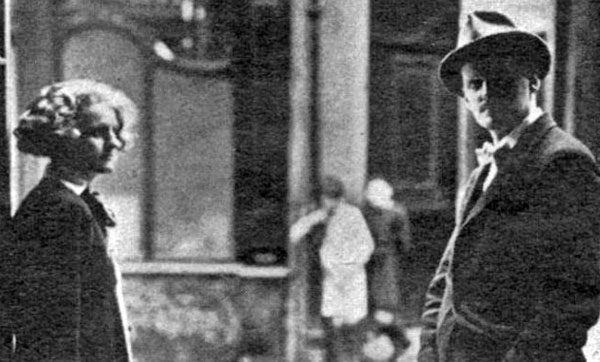by Christopher Horner
Immediacy itself is essentially mediated —Hegel

Look at that desk in front of you right here, now. Isn’t it just there, a bare existence, a simple immediate thing right in front of you? The senses register its presence. This, at least, is a bare fact that you know.
But look again at the desk in front of you. What is it you are aware of? A desk: not a carpet or a parrot, its colour (brown), its shape (rectangular), all that is that negates what might have been (it isn’t grey, it isn’t circular, etc). Your awareness of the desk is mediated by concepts and you, a language user, can only make sense of the thing through those concepts, the universal terms that enable you to pick out this thing here, now. And you are aware of it now as you were 5 minutes ago, although the light has changed and you, a namable person, not a disembodied spirit, have shifted your position on your chair to look back at the clock on the wall. Time, place, objects: everything is mediated: that is, nothing is simply ‘there’ in splendid isolation to be passively registered by your senses.[1]
 Consider again the wooden desk. It was once part of a tree, like the ones outside your window. It became a bit of furniture though a long process of growth, cutting, shaping buying and selling until it got to you. You sit before it as it has a use – a use value – but it was made, not to give you a platform for your coffee or laptop, but in order to make a profit: it has an exchange value, and so had a price. It is a commodity, the product of an entire economic system, capitalism, that got it to you. Someone laboured to make it and someone else, probably, profited by its sale. It has a history, a backstory.
Consider again the wooden desk. It was once part of a tree, like the ones outside your window. It became a bit of furniture though a long process of growth, cutting, shaping buying and selling until it got to you. You sit before it as it has a use – a use value – but it was made, not to give you a platform for your coffee or laptop, but in order to make a profit: it has an exchange value, and so had a price. It is a commodity, the product of an entire economic system, capitalism, that got it to you. Someone laboured to make it and someone else, probably, profited by its sale. It has a history, a backstory.
 All of this is the case, but none of it simply appears to the senses. Capitalism itself isn’t a thing, but that doesn’t make it less real. The idea that all that there really is amounts to things you can bump into or drop on your foot is the ‘common sense’ that operates as the ideology of everyday life: “this is your world and these are the facts”. But really, nothing is like that: there are no isolated facts, but rather a complex, twisted web of mediations: connections and negations that transform over time.
All of this is the case, but none of it simply appears to the senses. Capitalism itself isn’t a thing, but that doesn’t make it less real. The idea that all that there really is amounts to things you can bump into or drop on your foot is the ‘common sense’ that operates as the ideology of everyday life: “this is your world and these are the facts”. But really, nothing is like that: there are no isolated facts, but rather a complex, twisted web of mediations: connections and negations that transform over time.
This doesn’t mean that the way things show up for us is somehow false, an illusion that masks a hidden essence. The essence of a thing is reflected in the way it appears, in the connections and negations with everything else, and in the way in which it develops over time. Read more »

